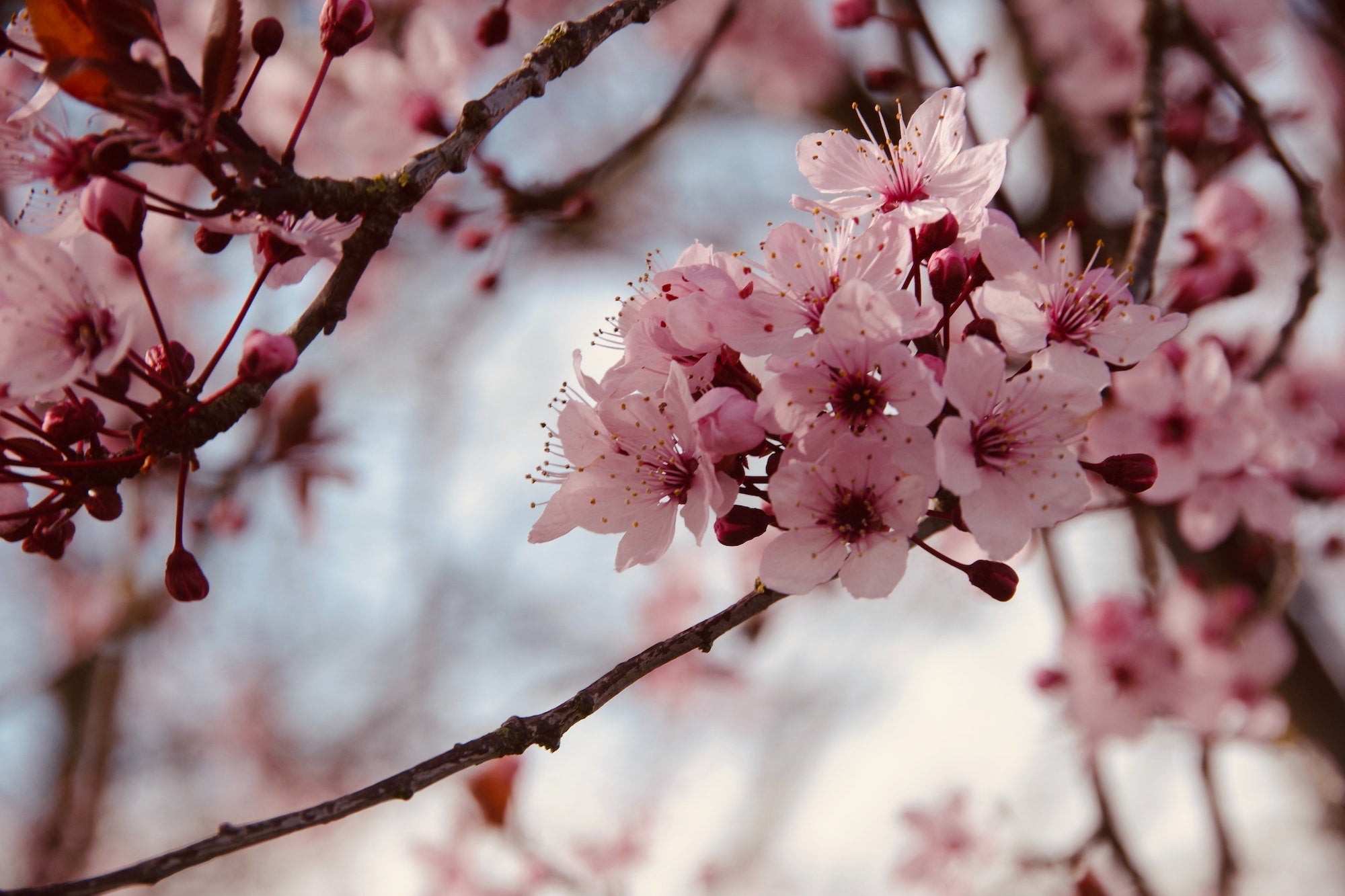
What is Yang Sheng? Your Guide to 2023’s Gig Health Trend
7 Min read
Christmas can be magical – twinkly lights, festive singalong songs that transport you back through the years, bonkers family traditions, and lots of opportunities to share food and laughter with friends and loved ones. But is anyone else beginning to daydream about some downtime in January? For all its sparkles, December can feel stressful, like a never-ending to-do list of present shopping and social commitments, with too much overindulgence and not enough time for the healthy rituals we know make us feel great. If like us, you are looking forward to stripping back the stress, chucking out the chocolates and starting to re-prioritise self-care, then read on!
Something we predict you’ll be hearing lots about in 2023 is the Chinese art of self-healing called Yang Sheng. This ancient philosophy has been around for 2,500 years, but as with our relatively recent uptake of Yoga, we in the West are late to recognising the potency of this Eastern wisdom. The direct translation of Yang Sheng is ‘nourish life’ and it is all about consciously nurturing our wellbeing on a day-to-day basis, rather than waiting till we get ill to prioritise our health. As an ancient Chinese proverb explains so perfectly: “Waiting to treat illnesses after they manifest is like waiting to dig a well after one is thirsty.”
In her book Yang Sheng: The Art of Chinese Self-Healing, practitioner of Chinese medicine Katie Brindle describes Yang Sheng as “proactive health maintenance”. She writes: “Regular Yang Sheng will do for your wellbeing what tooth brushing does for your mouth. You wouldn’t dream of not brushing your teeth each day – and once you see and feel the benefits of Yang Sheng, you will want to continue doing it every day, too. It is daily maintenance for your body, mind and spirit.”
Living by Yang Sheng principles is said to improve the way you feel in many ways, from better quality of sleep and digestion to increased energy levels, enhanced mood and better skin health. One of the many reasons it is so fantastic is that, being a self-healing system, you can achieve all this by doing the treatments yourself, mostly for free – which is music to our ears at a time when the cost of living is increasing so drastically.
Equally as appealing is that one of Chinese medicine’s fundamental tenets is balance, meaning that there are no strict regimes, punishing workouts or joyless eliminations of your favourite foods. It is about making a habit of simple techniques that do you good: such as eating mindfully, breathing practices, tapping, shaking, gentle exercise such as Qigong, great sleep hygiene, sex, dance, music, being in nature and cultivation of spirit.
The philosophy is that disease starts with a disruption of qi (energy) flow. Many of the practices are about achieving harmony and balance by getting qi flowing healthily around the body and to all the organs. We explore some of the fundamentals below.
Breath
In Chinese wisdom, breathing is thought of as the most powerful and immediate self-healing cure we have. The approach is to make breathing deep into the belly the norm, rather than the shallow breaths we find ourselves taking when we are stressed. The idea is to help relax the body and move stagnant qi (energy) around the body.
Yang Sheng breathing techniques have lots of similarities with Yogic-breathing, but some practices are unique, such as The Chinese Smiling Breath which involves sending an inner smile to each of your organs in turn as you exhale – liver, kidneys, lungs, heart and stomach. For each organ you take three rounds of long, slow breaths, imagining it being filled with warmth and happiness.
Brindle recommends finding a way to include practices like these into your daily routine, such as when you are in the bath or shower. And of course, trying to breathe fully and deeply whenever you remember throughout your day, and particularly when you catch yourself holding your breath or breathing shallowly in moments of tension.
Digestion
Where the Chinese attitude to food differs from the West is that the focus is on digestion and on how you’re eating, rather than purely on what you are eating. For thousands of years Chinese practitioners have stressed that gut health is vital for body and mind – something that we in the West are only just catching on to. Science research now proves that a healthy microbiome (the good bacteria that live in the gut) is integral to our overall health, physically and mentally.
In Chinese wisdom stress is seen as bad for digestion, so eating suggestions have one main aim: to give your body the time and space it needs to digest food properly. This includes cultivating gratitude for your food and looking at it carefully before you eat, making sure you are sitting down at a table (rather than at a screen or desk) to enable your body to be in that calm ‘rest and digest’ mode, chewing slowly, eating the same amount at each meal, stopping before you are too full and allowing time to be still and digest when you are finished.
Sleep
If you visit a Chinese medicine practitioner one of the first things they will ask you about is sleep. If you are struggling to sleep well, the assumption will be that you have a yin/yang imbalance. Yang is the hot energy that keeps you powered up all day, and yin is the cooling, nourishing, restoring energy that takes over at night. Suggestions to improve your ability to switch into the yin state that we need for sleep include taking a nap during the day, limiting high-intensity exercise after 6pm, and using calming breathing exercises throughout the day. Other techniques include having a very hot bath, followed by exfoliation and then a cold shower (switch it back to warm again if you are going to bed straight afterwards); and foot relaxation practices such as soaking your feet in warm water before bed and then activating an acupressure point called ‘Spleen 6’.
Exercise
Chinese medicine teaches that exercise doesn’t have to be vigorous to be effective. In fact, it suggests you are better off resting or sleeping than doing strenuous exercise when you’re already exhausted by other things in your life. Brindle refers to “the miracle of internal exercise” or meditative movement, like tai chi or qigong, a Chinese method of manipulating energy around the body. Practices might include shaking, gentle swinging twists at the waist, balancing on your tip toes with your knees bent and arms outstretched in front of you, and steadily walking in a circle, first to the right and then to the left.

Emotions
Until very recently Western medicine treated the mind and body separately. It’s only recently that we’ve started to take a more physical approach to mental health with the rise of Body Psychotherapists and Yoga Therapists who understand that trauma and our emotions are held in the body. Chinese medicine has always rooted our emotional state in the body, linking different emotions to specific organs. Anger is in the liver; fear in the kidneys; grief in the lungs; joy and anxiety in the heart; and worry in the stomach and spleen. “Recognising that you are, for example, an anxious person by nature means you’ve won half the battle,” writes Brindle. “You can then focus on supporting your stomach, the organ associated with anxiety.”
There is also advice about processing emotions, which focusses on first recognising and naming the emotion, and then shifting or releasing it by allowing it to move through the body. This might be done in various ways, including laughter, singing, dancing or shaking. Once the emotion has been let go of, reflection on what the message of the emotion might be is also encouraged.
“A drop of prevention is better than bucketload of cure.” (Ancient Chinese Proverb)
The more we hear and read about Yang Sheng, the more it fascinates and intrigues us. It is a vast subject and part of the even more enormous wisdom of Chinese medicine. We haven’t had space here to delve into some of the weightier philosophies around spirit and Taoism for example. But if you feel it’s time to prioritise your health and some of the above resonates with you, we encourage you to dive deeper and find out more in 2023.
Yang Sheng: The Art of Chinese Self-Healing by Katie Brindle is published by Hardie Grant Books.







